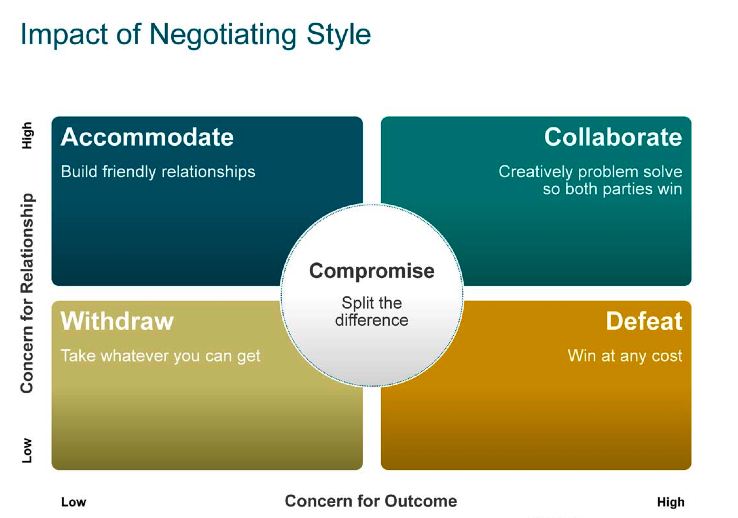Tension in Conflict Management: Pay Attention!
/“When the tension rises between your counter party’s and your interests, splitting the difference is a quick way to relieve the tension…but it is rarely the best solution.”
The groundbreaking work of Harvard’s Program on Negotiation, and the classic best-seller, Getting to Yes (Fisher, Ury, Patton), has successfully reframed the conversation on negotiation from adversarial and tactical based arguing to ‘win-win’ problem solving. Almost everyone nods their head in agreement on the desire for win-win. And yet, even casual observation demonstrates that we often don’t behave in a way likely to produce ‘win-win’ outcomes.
Every day, negotiators miss opportunities to achieve the success they could have had…and the problem isn’t what they think it is. They settled for less than optimal outcomes because they weren’t paying attention to the most critical ingredient to negotiating a ‘win-win’. They probably don’t know what it is…and even if they did…they wouldn’t know what to do about it.
In a fun, lively and interactive course, participants discover this missing ingredient and how to use this knowledge to move from “I know” to “I can.”
When the tension rises between your counter-party’s and your interests, splitting the difference is a quick way to relieve the tension…but it is rarely the best solution. For better results we need to gracefully manage the tension to work toward collaborate. The goal is win-win and split the difference is lose-lose.
True, nobody loses big and there is relative peace, but nobody wins either. Sometimes it really is fixed pie and perhaps split the difference is necessary. However we must be slower to split the difference in case there is a possibility to generate a better alternative for both sides. Wouldn’t it be great to have a way to discover the level of tension and maintain the productive zone wherever possible?
Our negotiation skills training courses help participants learn to “stay with the tension” to optimize win-win outcomes and how to use Principled Persuasion to recognize a counter-party's legitimate needs and aspirations while pursuing her own interests with energy and determination.
ZEHREN♦FRIEDMAN offers a full range of negotiation skills courses to help you negotiate better.
Read more here: http://zehrenfriedman.com/skills-training/negotiate






